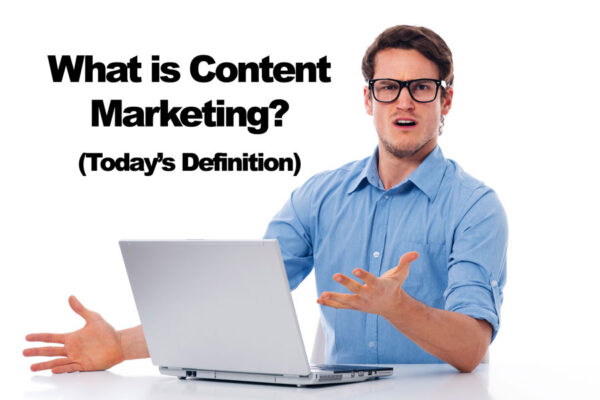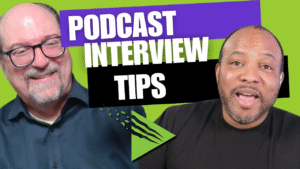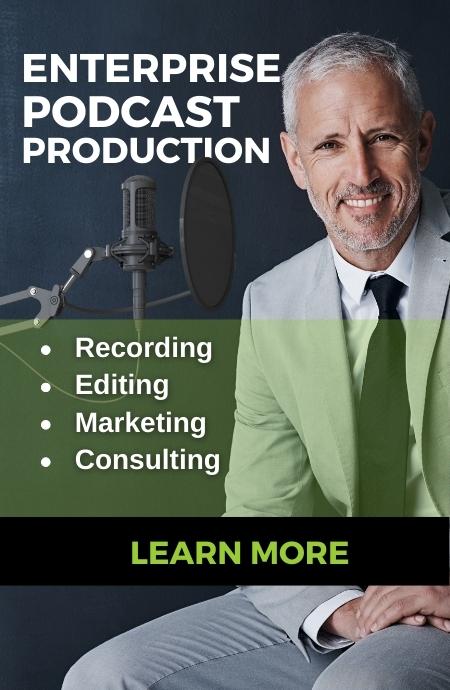This article written by A. Lee Judge was originally published by the Content Marketing Institute.
Is it time to expand the definition of Content Marketing? I admit this is a bold question to ask for someone writing his first guest post for the organization that owns the definition. Content Marketing Institute defined content marketing as a strategic marketing approach, and I agree that this definition is still solid.
However, in the years since, content marketing has spawned new job titles, careers, departments, and even multiple new types of businesses that didn’t exist before the concept.
“Content Marketing is a strategy. Marketing your Content is a skill.” ~ A. Lee Judge (@aleejudge)
Content Marketing is more than a marketing strategy that uses content to attract an audience. Content Marketing is also a full-on skillset that requires today’s marketer to be able to literally “market” the content. It’s no longer enough to market “with” content. We have to understand how to market the content itself.
The Skill of Content Marketing
Many marketers fall short of their content marketing glory by thinking that getting their message into a form of content and distributing it is the end of the process. Blog posted – check. Video posted – check.
I never thought that I would find myself quoting the 70’s soft-pop duo The Carpenters, but if you believe that your job is done after you create and distribute, I have to tell you that “We’ve Only Just Begun.” The content is a vessel of conveying the message of your organization, but to reach the next level you have to market the vessel.
You may be marketing “with” content, but who is marketing your content?
Here is my proposal. Think of your content as your product. In order for that product to be effective and drive profitable customer action you must first market your product. How do you market that product? You start with the basics of marketing just as you would market any other product.
The American Marketing Association defines Marketing as “the activity, set of institutions, and processes for creating, communicating, delivering, and exchanging offerings.” Now let’s apply this to our content product.
Marketing Your Content Like a Product
If Content were your product, how would you market it? You would ask these questions (while keeping the 4 Ps of Marketing in mind):
How do we get people interested in the product (Promotion)?
The “If you build it, they will come” model does not work for content. Each piece of content must follow a strategy that goes beyond distribution. There must be a plan to keep that content viable long after the content is given to the world.
Even brands with large audiences must put thought into how they will drive interest in their latest piece of content. The keyword here is “interest”.
It isn’t enough to get the content posted or viewed, the content must be designed to drive interest. After they see the headline, title, or image, how will we work to keep them engaged in the content long enough to drive the desired action?
What is our MVP (minimum viable Product)?
Do you really need a 2,000 word blog or a 10 page e-book to begin your content marketing? Speed and frequency are considerably large factors in marketing your content. The content that shows up the most often gains the most mind share, so while working on that super high quality piece of content, begin pushing out smaller pieces of your content product into the market.
Do we advertise our product or depend on word of mouth?
Organic content is great. Paid content is precise. You may need both.
Your content product, when done well, can grow and spread on its own, but don’t be deceived into believing that the content that you “organically” found wasn’t placed in front of you at someone’s cost. Consider this when looking to gain exposure for your content product.
Will we charge for our product or will it be free (Price)?
To gate or not to gate, that is the question. With content, our contact information is currency and most of us think twice before spending it. So be conscious of the value exchange.
Have you ever enjoyed a sample from a food-court restaurant? It piqued your interest, it exposed you to the brand and its offerings, but you knew that the full plate of food holds true value. And you were happy to pay for it.
The same goes for your content product. Giving away content is of the highest marketing value to you, the content producer. More complete and in-depth content is of the highest value to the consumer. Both gated and non gated are necessary.

How many versions of the product will we produce?
Just like with many products, one size or type does not fit all. For your content product this may mean not only personalization, but delivering the content in the format, size, length, location, and media that is most suitable by your consumer.
Each content idea should be repurposed and remixed into multiple right-sized versions. Podcasts become blogs, blogs become posts, and posts become tweets.

Through what and how many channels will we distribute our product (Place)?
Getting your content product to market is the key to success; and by “market”, I don’t just mean “out there.” I mean directly into the hands and in the eyes of those who will consume your content. This means understanding what channels are important to your consumer and making sure that you have a content product in that place and at that time where your consumer is.
How do we keep manufacturing this product with the highest efficiency while maintaining high quality?
If your marketing team spends weeks perfecting that one video or that one white paper, then they may be failing to successfully market their content by simply letting time pass them by. While competitors are staying top of mind by efficiently producing a stream of constant content, many departments are silent while preparing that big piece of quality content.
Systems must be in place to ensure that you are able to maintain a constant production level of your content even while the “big launch” is being prepared.
Applying the Roots of Marketing to Content
Defining the act of ‘marketing the content produced’ as a separate idea from the strategy of ‘using content for the purpose of marketing’ requires a new take on the definition of Content Marketing. With a view of marketing as an activity and content as the product we can now clearly apply the skill of Marketing Your Content to the strategy of Content Marketing.
From this comes my proposal for the #2 definition of Content Marketing as a verb.
Con·tent Mar·ket·ing | \ ˈkän-ˌtent \\ ˈmär-kə-tiŋ \
- noun. A strategic marketing approach focused on creating and distributing valuable, relevant, and consistent content to attract and retain a clearly defined audience — and, ultimately, to drive profitable customer action.
- verb. Applying marketing skills and techniques to written, video, audio, or social content in order to provide the greatest possible reach, longevity, and effectiveness of that content.
As an active content creator and content marketer, this definition update is intended to help marketers to continue to grow in this wonderful segment of the marketing industry we know and love as Content Marketing.
- The Three L’s Every Podcast Host Needs: Listen, Learn, and LeadToo many new podcast hosts make the mistake of scripting every word – missing the heart of what makes podcasts work: real, unscripted conversation. This article explores how the best shows are built on curiosity, not checklists. Learn why Content Monsta’s producers say to ditch the pre-interview, bring just a few strong questions, and focus on the three L’s: Listen, Learn, Lead.
- How to Build a Revenue Machine by Aligning Sales and Marketing with Bruce ScheerBruce Scheer, author of Inspire Your Buyers, breaks down how sales and marketing misalignment kills deals in the final 30% of the buying process – and how a unified value narrative can transform your go-to-market strategy.
- Designing a Winning Podcast Structure: Lessons from Behind the ScenesIf your podcast or video content isn’t landing, structure may be the problem. At Content Monsta, we’ve learned that leading with a strong hook, cutting the fluff, and mapping out every element – from intros to promos – keeps audiences engaged and improves results. Here’s how to structure your content for maximum impact.







